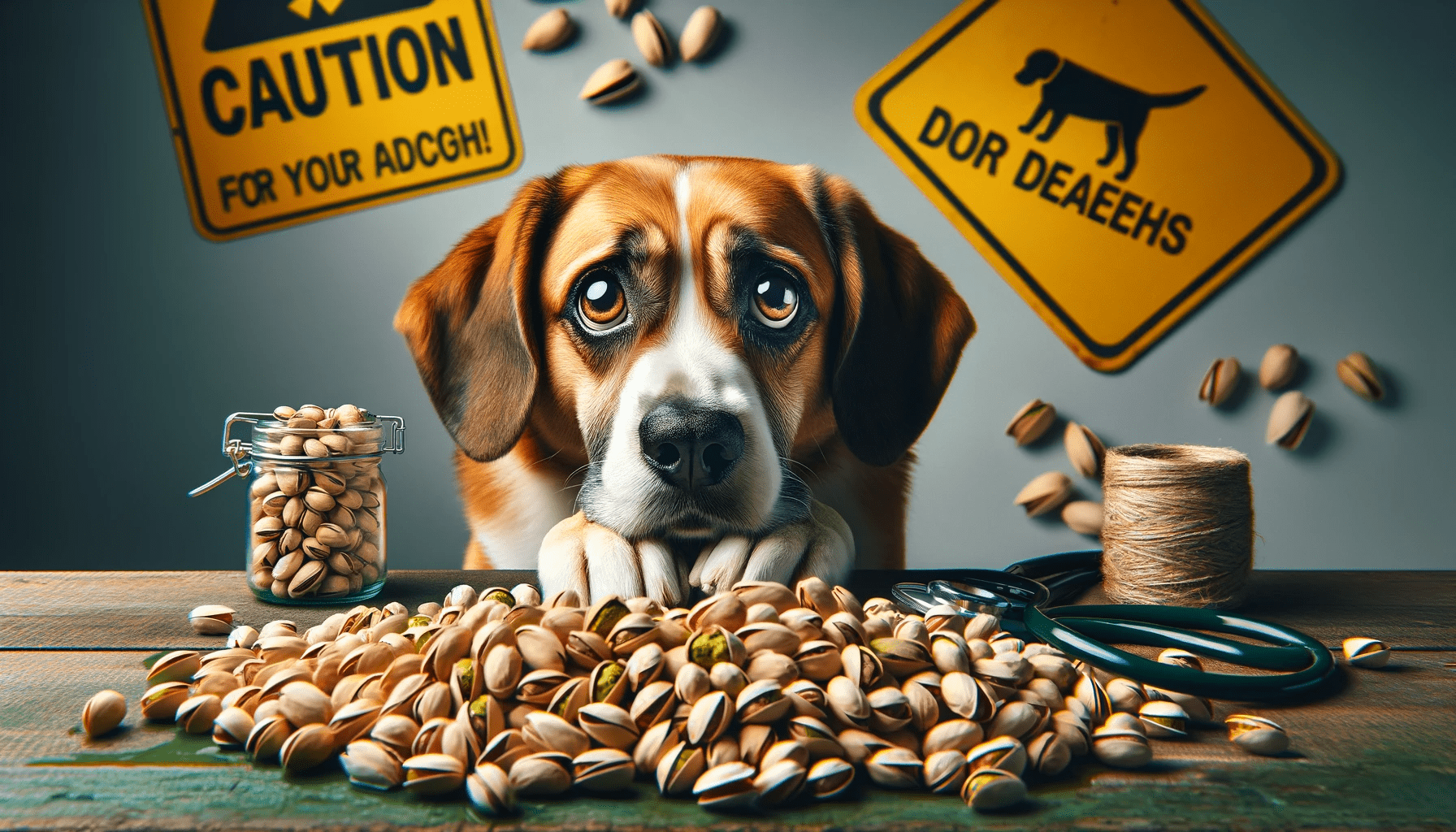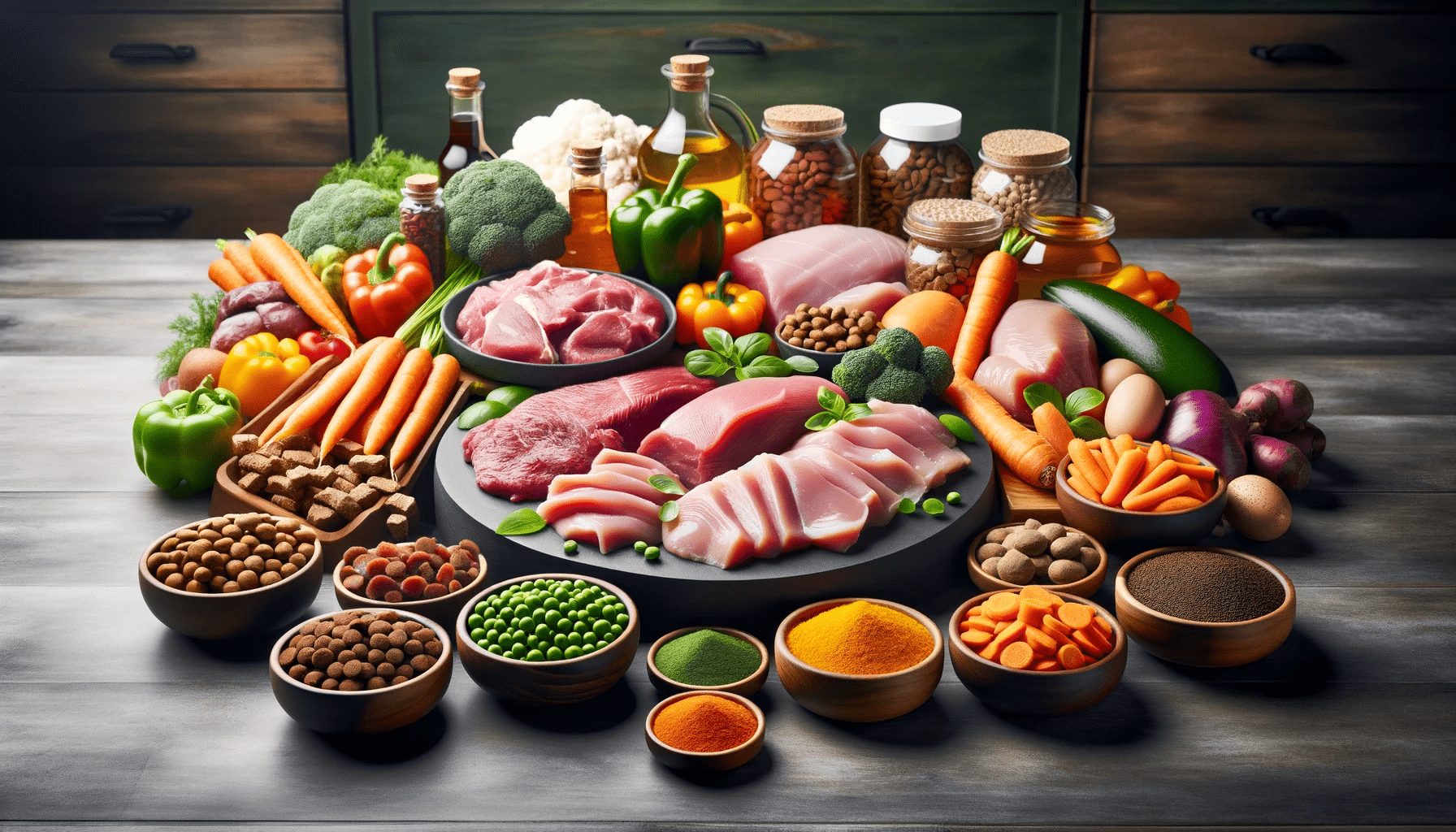Looking for the best diets for your dog with special needs? You're in luck! In this article, we'll cover six top-notch options that are tailored to address various dietary requirements.
From the raw food diet to the weight management diet, each choice provides specific benefits to help your furry friend thrive.
So, whether your dog needs a limited ingredient or grain-free diet, or even a homemade or prescription diet, we've got you covered.
Let's dive in and find the perfect fit for your pup!
Key Takeaways
- Raw Food Diet: Feeding uncooked meats, bones, organs, fruits, and vegetables can improve digestion through natural enzymes, promote healthier skin and coat, strengthen the immune system, and increase energy levels.
- Limited Ingredient Diet: This type of diet can alleviate symptoms of pet food allergies or sensitivities by using a minimal number of ingredients and providing a novel protein source to minimize sensitivities. High-quality brands formulated for food sensitivities are available.
- Grain-Free Diet: A grain-free diet can potentially improve digestion, reduce allergies, and promote healthier skin and coat. However, there may be risks associated with grains such as allergies and sensitivities, and nutritional deficiencies if not properly replaced. Suitable alternatives to grains are available.
- Weight Management Diet: To manage a dog's weight, it is important to consult with a vet to determine appropriate calorie intake, choose a high-quality commercial weight management dog food, follow portion control guidelines, incorporate low-calorie treats, and monitor progress regularly.
Raw Food Diet
If your dog has special needs, consider feeding them a raw food diet. A raw food diet for dogs involves feeding them uncooked meats, bones, organs, fruits, and vegetables. Many dog owners believe that this diet offers several benefits for their pets. One of the main advantages is improved digestion. The natural enzymes in raw food can aid in the breakdown of nutrients, leading to better absorption and less strain on the digestive system. Additionally, raw food diets often result in healthier skin and coat, stronger immune systems, and increased energy levels.
However, it's important to be aware of the risks associated with raw food diets. One concern is the potential for bacterial contamination. Raw meat can contain harmful bacteria such as Salmonella and E. coli, which can pose a risk to both dogs and their owners. It's crucial to handle and store raw food properly to minimize the chances of infection.
Another risk is nutritional imbalances. It can be challenging to provide a well-rounded diet that meets all of a dog's nutritional needs without the guidance of a veterinary nutritionist. Dogs on raw food diets may require supplements to ensure they're getting all the necessary vitamins and minerals.
Limited Ingredient Diet
A limited ingredient diet can be beneficial for your dog's special needs. If your dog suffers from pet food allergies or sensitivities, a limited ingredient diet may help to alleviate their symptoms and improve their overall health and well-being. These diets are specifically formulated with a minimal number of ingredients to reduce the risk of triggering an allergic reaction or intolerance.
Pet food allergies are relatively common in dogs and can manifest as skin irritations, gastrointestinal upset, or even chronic ear infections. By feeding your dog a limited ingredient diet, you're providing them with a novel protein source that they may not have been exposed to before. This novel protein diet can help to reduce the likelihood of an allergic reaction as it minimizes the chances of your dog being exposed to proteins that they're sensitive to.
When selecting a limited ingredient diet for your dog, it's important to choose a high-quality brand that's specifically formulated for dogs with food sensitivities. These diets often contain a single source of animal protein, such as venison or duck, and a limited number of other ingredients to minimize the risk of triggering an allergic response.
It is important to note that while a limited ingredient diet can be beneficial for dogs with food sensitivities, it may not be suitable for all dogs. If you suspect that your dog has a food allergy or sensitivity, it's best to consult with your veterinarian who can help you determine the underlying cause and recommend an appropriate dietary plan.
Grain-Free Diet
If you're considering a grain-free diet for your dog, there are a few important points to keep in mind.
First, grain-free diets can offer potential health benefits such as improved digestion and reduced allergies.
However, it's crucial to be aware of the potential risks associated with grains, such as allergies and sensitivities.
Lastly, if you decide to go grain-free, there are suitable alternatives available that can provide the necessary nutrients for your dog's well-being.
Health Benefits of Grain-Free
When feeding your dog a grain-free diet, you can expect to see a variety of health benefits.
One of the main benefits is improved digestion. Many dogs have difficulty digesting grains, which can lead to gastrointestinal issues such as bloating, gas, and diarrhea. By eliminating grains from their diet, you can help alleviate these problems and promote a healthier digestive system.
Another benefit of a grain-free diet is improved skin and coat health. Grains can often cause allergies in dogs, leading to itchy and irritated skin. By removing grains from their diet, you can help reduce these allergies and promote a shinier and healthier coat.
Additionally, a grain-free diet can also help with weight management, as grains are often high in carbohydrates and can contribute to weight gain.
Potential Risks of Grains
You may experience potential risks when feeding your dog a grain-free diet. While there are certainly benefits to eliminating grains from your dog's diet, it's important to be aware of the potential drawbacks as well.
Here are four risks of grains to consider:
- Nutritional deficiencies: Grains, such as wheat and corn, can provide essential nutrients like fiber, vitamins, and minerals. Removing these grains from your dog's diet may lead to nutritional imbalances if not properly replaced.
- Digestive issues: Some dogs may have difficulty digesting grains, leading to gastrointestinal problems like bloating, gas, and diarrhea. However, it's important to note that not all dogs have issues with grains, and a grain-free diet may not be necessary for every dog.
- Risks of gluten: While gluten is a protein found in grains like wheat, barley, and rye, it can cause adverse reactions in dogs with gluten sensitivity or allergies. However, it's important to note that gluten sensitivity is relatively rare in dogs.
- Lack of variety: Grains can provide variety and texture to your dog's diet. A grain-free diet may limit the options available, potentially leading to boredom and a less balanced diet overall.
Suitable Alternatives to Grains
While there are potential risks associated with feeding your dog a grain-free diet, there are suitable alternatives that can provide the necessary nutrients and variety. Grain-free dog food has gained popularity in recent years, as it eliminates grains like wheat, corn, and soy, which some dogs may have difficulty digesting.
However, it's important to note that grains can be a valuable source of carbohydrates and fiber for dogs. If you're considering a grain-free diet for your dog, there are alternative options available, such as gluten-free dog food. Gluten-free dog food is made without wheat, barley, and rye, which are grains that contain gluten. This alternative can be beneficial for dogs with gluten sensitivities or allergies.
It's crucial to consult with your veterinarian before making any dietary changes for your dog to ensure that their nutritional needs are being met.
Weight Management Diet
For effective weight management in your dog, consider implementing a diet focused on portion control and regular exercise. Here are four key points to keep in mind when it comes to weight management for your furry friend:
- Calorie controlled diet: Just like humans, dogs need to consume the right amount of calories to maintain a healthy weight. Consult with your veterinarian to determine the appropriate calorie intake for your dog's age, breed, and activity level. Opt for a dog food that's specifically formulated for weight management, which will have a lower calorie content.
- Portion control: It's crucial to measure your dog's food portions accurately to avoid overfeeding. Use a measuring cup or a kitchen scale to ensure you're providing the correct amount of food. Avoid free-feeding and stick to a consistent feeding schedule.
- Regular exercise: Exercise plays a vital role in weight management for dogs. Engage in regular physical activities such as walking, running, or playing fetch. Aim for at least 30 minutes of exercise per day, but consult your vet to determine the appropriate duration and intensity based on your dog's health and fitness level.
- Monitoring progress: Keep track of your dog's weight by regularly weighing them and monitoring their body condition score. Adjust their calorie intake and exercise routine accordingly to ensure steady and healthy weight loss.
Implementing a weight management diet that includes portion control and regular exercise can help your dog achieve and maintain a healthy weight. Remember to consult with your veterinarian to tailor the diet and exercise routines to your dog's specific needs.
Homemade Diet
If you're considering a homemade diet for your dog with special needs, there are several nutritional benefits to keep in mind.
Homemade meals allow you to have complete control over the ingredients and can be tailored to your dog's specific needs.
However, it's important to ensure that the homemade meals are balanced and provide all the necessary nutrients, so consulting with a veterinary nutritionist is crucial for preparing a well-rounded diet.
Nutritional Benefits of Homemade Diet
You can achieve optimal nutrition for your dog by preparing a homemade diet. Here are some nutritional benefits of a homemade diet for your furry friend:
- Health Risks: By preparing meals at home, you have control over the ingredients you use, reducing the risk of harmful additives and preservatives commonly found in commercial dog food. This can help prevent health issues such as allergies, digestive problems, and obesity.
- Cost Comparison: While homemade diets may initially seem expensive, they can be cost-effective in the long run. By using affordable, high-quality ingredients and minimizing waste, you can provide your dog with nutritious meals without breaking the bank.
- Tailored Nutrition: Homemade diets allow you to customize your dog's meals based on their specific needs, such as age, breed, and any medical conditions they may have. This ensures they receive the right balance of nutrients for optimal health.
- Transparency and Quality Control: Preparing meals at home gives you full transparency over the sourcing and quality of ingredients. You can choose organic, locally sourced, and human-grade ingredients, ensuring your dog receives the best possible nutrition.
Preparing Homemade Dog Meals
To prepare a homemade diet for your dog, start by gathering the necessary ingredients and equipment. Dog meal planning is essential to ensure that your furry friend receives balanced nutrition.
Begin by selecting high-quality protein sources such as lean meats, fish, or eggs. Include vegetables like carrots, peas, and sweet potatoes for added vitamins and minerals. To provide essential fatty acids, add a small amount of healthy oils like fish oil or coconut oil.
It's important to consult with your veterinarian or a veterinary nutritionist to determine the appropriate portion sizes and ensure your dog's specific needs are met. Remember to prepare the meals in a clean and sanitary environment and store them properly to maintain freshness.
Prescription Diet
When considering a prescription diet for your dog with special needs, it's important to consult with your veterinarian. They'll be able to assess your dog's specific needs and recommend the most appropriate prescription diet.
Here are four key points to consider when choosing a prescription diet for your dog:
- Medical condition management: Prescription diets are specifically formulated to support dogs with certain medical conditions, such as allergies, kidney disease, or gastrointestinal issues. These diets contain ingredients that help manage and alleviate symptoms associated with these conditions.
- Weight management: If your dog needs to lose or gain weight, a prescription weight management diet may be recommended. These diets are designed to control calorie intake while ensuring your dog receives the necessary nutrients.
- Nutritional balance: Prescription diets are carefully formulated to provide a balanced and complete nutrition profile for dogs with special needs. They often contain higher levels of specific nutrients, such as omega-3 fatty acids or antioxidants, to support overall health.
- Quality control and safety: Prescription diets undergo rigorous testing and quality control measures to ensure they meet the highest standards. They're typically only available through veterinarians or authorized retailers to ensure their authenticity and safety.
Frequently Asked Questions
Are Raw Food Diets Safe for Dogs With Special Needs?
Raw food diets can be safe for dogs with special needs, but it's important to ensure they receive proper nutrition. Consult with a veterinarian to create a balanced diet plan that meets their specific needs.
Can a Limited Ingredient Diet Help With Food Allergies in Dogs With Special Needs?
A limited ingredient diet may be beneficial for dogs with food allergies and special needs. It can help identify and eliminate potential allergens. Raw food diets should be approached cautiously and discussed with a veterinarian.
Is a Grain-Free Diet Suitable for Dogs With Special Dietary Requirements?
A grain-free diet may not be suitable for dogs with special dietary requirements. There is controversy surrounding the benefits and potential risks of grain-free diets. It is important to explore alternative diets that meet your dog's specific needs.
What Are the Best Weight Management Diets for Dogs With Special Needs?
For weight management, consider healthy alternatives like low-calorie dog food and portion control. Prescription diets formulated for weight loss can also be beneficial. Consult with your veterinarian to determine the best diet for your dog's specific needs.
Can Homemade Diets Meet the Nutritional Needs of Dogs With Special Needs?
Yes, homemade diets can meet the nutritional needs of dogs with special needs, but it's important to consult a vet or animal nutritionist for guidance. Commercial diets offer convenience and are specially formulated for specific conditions, providing added benefits.
Conclusion
In conclusion, when it comes to choosing the best diet for dogs with special needs, it's important to consider their individual requirements.
Whether it's a raw food diet, limited ingredient diet, grain-free diet, weight management diet, homemade diet, or prescription diet, each option has its own benefits and considerations.
Consulting with a veterinarian and considering the dog's specific needs and health conditions is crucial for making an informed decision on the most suitable diet.






